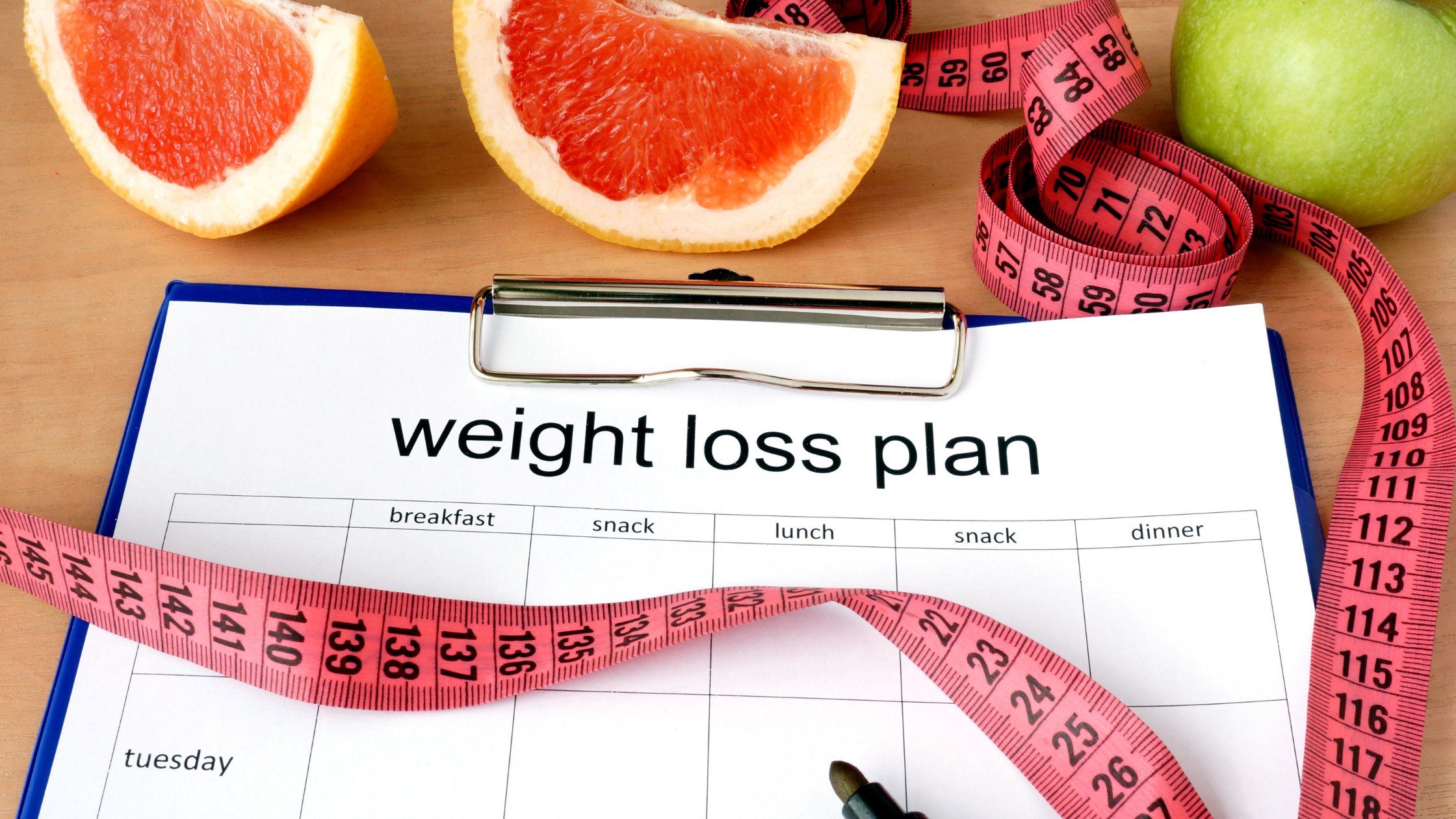Can Losing Weight Stop Urine Leakage?
Written by Tye Medical on Mar 1st 2021
For many Americans, losing weight is a priority, and everyone has different reasons. For those battling incontinence, stopping (or reducing) urine leakage is often high on the list of reasons to drop those extra pounds.
Slimming down to a healthier weight can dramatically improve, or in some cases, cure incontinence symptoms.
And by incontinence, we mean any loss of bladder control, whether occasional or frequent, a dribble or a deluge.
Do you pee when you cough or laugh? That’s called stress incontinence, and it’s the type of bladder leakage most affected by excess weight.
This doesn’t mean that everyone with stress incontinence carries additional pounds. But if you struggle to maintain a healthy weight, you’re more likely to develop or worsen stress incontinence.
So, let’s delve into the reason for this and outline steps you can take to reduce or eliminate urine leakage.
How Your Pelvic Floor Impacts Stress Incontinence

Your pelvic floor is a muscle resting below all your pelvic organs. It stretches like a trampoline from one sitting bone to the other and from your tailbone to your pubic bone. It’s what holds your organs in place, supporting them in the correct position so that they’re not all dangling loosely inside your abdominal cavity.
Since it’s a muscle, it contracts and relaxes. It can be strengthened or weakened. Most often, pelvic floor dysfunction arises from a weakening of this muscle.
Without the appropriate amount of support, the bladder sags within your abdomen and presses against other organs, or other organs press against it. This direct pressure on your bladder creates force and urgency.
Additionally, the pelvic floor muscle is responsible for tightening the sphincter in your urethra that closes off the flow of urine. A weaker pelvic floor muscle means your sphincter can’t tighten enough to hold back the pressurized urine, especially when you sneeze, cough, laugh or otherwise jar your body (such as during exercise). This is called stress incontinence.
Women are more likely to develop the condition because of childbirth. The natural birthing process is traumatic to the body, and all the necessary “pushing” leaves the pelvic floor muscle weakened, or in some cases, damaged.
However, women (and men!) can “work” their pelvic floor muscles, effectively strengthening the pelvic floor muscle through Kegel exercises and even yoga (before, during, and after pregnancy).
For a more detailed understanding of the pelvic floor, please read our article, The Mysterious Pelvic Floor: Why Both Sexes Should Pay Attention.
Excess Weight Can Cause or Aggravates Stress Incontinence
You might already be prone to stress incontinence because of childbirth (women) or an enlarged prostate (men), but if you’re overweight, it can intensify symptoms.
Extra pounds increase pressure within your abdominal cavity. This places more stress on organs like your bladder and weakens or damages pelvic floor muscles. Over time, the additional pressure causes or worsens bladder leakage from stress incontinence.
In other words, the increased abdominal pressure from the extra weight exceeds your urinary sphincter’s ability to hold back urine, making you prone to urine leakage.
For some people, just losing a little weight cures their bladder leakage completely. For others, they might need to lose ten or more pounds to notice an improvement. It all depends on your body’s needs and the amount of excess weight aggravating your symptoms.
How to Determine Your Healthy Weight

How do you know if your weight is causing or contributing to your incontinence? There is no simple answer to this question because there are several methods for determining a healthy weight – and no one method provides a complete picture.
Ultimately, it’s trial and error. For the sake of your health (if it’s appropriate), try a weight loss plan that suits your needs while also monitoring your urine leakage.
A healthy weight might not cure your stress incontinence completely, but you’ll probably notice an improvement. Consider these common methods to determine if you’re at a healthy weight or to understand where your healthy weight range is.
BMI (Body Mass Index)
Traditionally, medical doctors point to your BMI to indicate whether you’re overweight. However, this number doesn’t tell the whole story.
BMI doesn’t consider several important factors like:
- Age
- Gender
- Muscle-fat ratio
- Body fat distribution
- Body shape
Consider BMI as a general method for assessing weight, but be sure to keep its limitations in mind.
You can calculate your BMI manually:
1. Multiply body weight in pounds by 703.
2. Divide that number by height in inches.
3. Divide that number by height in inches again.
Then evaluate your results:
- BMI of 18 and below is underweight.
- BMI of 19-24 is an ideal weight.
- BMI of 25-29 is overweight.
- BMI of 30 is obese.
You can also use a BMI calculator to determine your BMI.
However, if you want a more customized understanding of how your weight impacts your health, consider these additional methods.
Waist-to-Hip Ratio (WHR)
The more body fat you have around your midsection, the greater your risk of developing cardiovascular disease, diabetes, and weight-related incontinence. Therefore, knowing your hip-to-waist ratio can help you determine if you’re at a healthy weight based upon measurements.
Calculate your waist-to-hip ratio by:
1. Measuring around your waist at the narrowest part, typically just above your belly button.
2. Diving this measurement by the distance around your hips at the widest part.
Results for Men:
- If below 0.9, the risk of a cardiovascular health problem is low.
- If from 0.9 to 0.99, the risk is moderate.
- If at 1.0 or over, the risk is high.
Results for Women:
- If below 0.8, the risk is low.
- If from 0.8 to 0.89, the risk is moderate.
- If at 0.9 or above, the risk is high.
Waist-to-Height Ratio (WtHR)
If your waist measurement is less than half your height, you’re at lower risk for developing health complications. It’s another more effective method for determining a personalized healthy weight.
Calculate your waist-to-height ratio by dividing your waist size by your height in inches. If you get a 0.5 or less, you’re likely at a healthy weight.
Guidelines for Choosing a Healthy but Effective Weight Loss Option

Achieving and maintaining a healthy weight can reduce urine leakage and improve your overall health. But there’s a lot of information to wade through when deciding on an action plan. Some of that information is helpful – but much of it isn’t.
Fad diets, gimmicks, and new dietary trends can distract you from effective healthier options. For more information, check out our article, Expert Tips for Losing Weight After 40 and Why It Seems So Hard!
If you want to shed some pounds to improve your bladder health and reduce disease risk, these tips can help you get on the right track.
1. Exercise even if you leak.
If you’re losing weight to be healthier, exercise is a vital part of achieving that goal. Not only will it help you lose weight and ease urine leakage, but it will also help prevent disease.
So continue exercising despite urine leakage. Stress incontinence and bladder leaks physically harmful. And if you’re prepared with the appropriate incontinence pads or protective underwear, you can avoid embarrassment or self-consciousness.
For tips on exercising with incontinence, check out our article, Exercising with Stress Incontinence: How to Beat the Leaks!
2. Enlist the help of a dietitian.
As we’ve mentioned, these days, it’s difficult for the average person to determine what’s good to eat and what’s not. Which diet plans are healthy? Which one is right for you?
This is where guidance from a registered dietician can be invaluable. A dietician can assess your medical conditions, medical history, weight loss goals, and habits and then develop an eating plan (and probably exercise goals) that’s tailored to your needs.
Ask your primary care physician for a referral.
3. Address underlying conditions.
Before enlisting the help of a dietician or nutritionist, talk to your primary care provider about ruling out possible underlying conditions. Common conditions that cause weight gain include:
- Hypothyroidism (underactive thyroid)
- Depression
- Insomnia
- Menopause
- Cushing’s disease
- Polycystic ovarian syndrome
- Sleep apnea
This isn’t an exhaustive list, so be sure to discuss all your symptoms with your doctor.
4. Find healthier habits to replace eating.
Easting isn’t just a physical need: it’s also a mental and emotional compulsion. We’ve all been there for one reason or another.
While’s it’s always beneficial to keep healthy snacks and food options on hand for when the need strikes, you can go a step further.
What do you enjoy outside of food? What hobbies or interests have taken a backseat to other responsibilities? Rediscover what you enjoy and incorporate this into your day as often as possible.
Many times, when we’re free to employ our gifts and talents through enjoyable activities, it acts as an emotional release and relieves stress. This can seriously calm some of those food cravings.
Protect Yourself Against Urine Leakage – Whether a Little or a Lot
Regardless of the reason for your leaks, dependable protection is key to lower stress, active living.
If you have lighter incontinence symptoms, our Ultra-Thin Pads will provide a discreet fit, thorough protection, and odor control.
If your incontinence symptoms are heavier, our Protective Underwear offers robust protection against leaks along with the discreet, comfortable fit you want.


